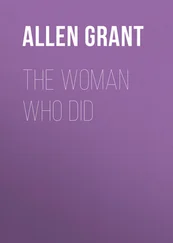I thought you were done with Haiti. Diddled out.
Don’t try to shame me, either.
Like everyone else who had swarmed to Haiti during the intervention — the soldiers, the journos, the diplomats, the spooks, the analysts and lawmakers and civil servants, the aid workers, the deal makers, the pimps of the spectacle — Tom Harrington had abandoned the country to its fog of misery. Everyone had left, with or without regrets, with or without bitterness, letting the island drift away from consciousness on a raft of indifference, the more cynical among them muttering that the country was too fucked even to throw a good war.
His wife knew very well that he nourished an investment in Haiti, not of money or blood but of inexplicable hope, and she knew he could navigate the streets of its capital better than those of Dade County, and that he had adapted to the rhythms of its futility to the extent that he saw, perhaps wrongly, the people’s lives in Haiti as extraordinarily difficult but ordinary nevertheless, and not exempt from grace. Tom admitted he even liked the island, though it made him afraid — the idea of it, the dark myth, his anticipation of its treachery — but almost never when he was there on the ground, slogging about through its landscape of ruination.
And a simple murder, yes. He couldn’t explain that compulsion more than he’d tried. Without a single expectation he felt drawn to Conrad Dolan, Dolan’s unnamed client, and his case. A domestic homicide, a violence between a husband and a wife, had become worthy of Tom’s time — surely no more than forty-eight hours; it had become a vaguely vulgar but compelling opportunity. The sensation was embarrassingly odd, but somehow the transition, the funneling down from the carnage he had witnessed in many of the world’s most violent places to the events surrounding the fate of two individuals struck him as inevitable, a predetermined sequence in the ongoing education that would lead him home, once and for all, having learned whatever lesson still eluded him. And what lesson might that possibly be that had yet to take hold? Love thy neighbor, or exterminate the brutes?
Several mornings later he met the unimposing Dolan at their gate in the Miami airport, dressed in the clothes he had described to Tom on the phone — khaki pants, a collegial blue button-down cotton shirt, a navy blazer, and tasseled loafers — the uniform of Florida’s retired power brokers. Dolan had described himself as looking like a debauched Irishman who had taken a wrong turn coming out of Fenway Park but actually he reminded Tom of the old parish priest whom he had once served as altar boy at his grandparents’ church in the cold streets of Burlington, Vermont. Dolan was considerably shorter than Tom, round-bellied, and older than Tom had surmised from his voice. His white hair was balding on both sides of what Tom supposed he could call a widow’s peak, and he wore wire-rim glasses, the thick lenses cut in an aviator’s style. Some people who choose to carry a badge can’t hide the fact of their profession merely by dressing out in street clothes; there’s no day off for their aura of authority, their congenital need to scrutinize. Tom had observed them from the periphery in Haiti, an ensemble of high-end cops, the exotica of law enforcement, special agents and security officers and God knows what in blue jeans and business suits, bureaucrats with shoulder holsters, stiff with prosecutorial self-confidence, much like Harrington’s classmates at Yale law school, arrogant and dismissive in their brilliance but dull outside the clubhouse, of no apparent use to Haiti beyond their ability to spend money and scare people with their profound whiteness.
But Dolan could have been anybody; he was different, not because he blended in — he didn’t — but because, Tom quickly learned, he shared Harrington’s preference to look at the world through the eyes of a foot soldier or a cop on the beat, from the ground up. Most of all he loved to talk, his head an archive of stakeouts and busts running back to the glory days of J. Edgar Hoover, and he was enamored by the mystery of personality enough to preserve it from his obligation to rip and dilute and defeat that mystery into paperwork. On the island Dolan would tell Harrington the most difficult type of suspect to interrogate is a raconteur: you ask him his name and never get in a follow-up question. You hear a lot but you never really find out anything. And Tom had thought ungenerously, Dolan is talking about Dolan .
When I was supervisor of the Bureau’s office in San Juan, Dolan said as they checked in for their flight, the only whites in a queue of Haitians, we had a saying, it was like our motto: There are only two types of Americans in the Caribbean, those who are wanted. .
Yeah?
. . and those who are not wanted.
As they walked down the ramp and stood in a second queue waiting to board, Dolan leaned in to Tom to tell a story. The hotel in this airport, I made my last collar here before I retired from the Bureau, he began, lowering his voice. The guy was huge, six foot six, a serial killer, twenty-three victims. A tip came in about two o’clock in the morning that he was staying here, I got a backup from the Miami police force, and we came on over, took the elevator to the fifth floor, and there he is, in the hall with this little white guy. I identified myself and said, You’re under arrest, and he goes like this — Dolan’s right hand reached for his left side. He was wearing a sport coat and I said to myself, Just show me a peek of that gun and I’ll blow you away, you son of a bitch, but he didn’t have a gun on him, it was all reflex, muscle memory, he was drunk and acted instinctively. So we handcuffed the two of them and walked them outside and put them in the car and I told this Miami cop, Fuck, that guy’s lucky, I almost shot him, and the cop says, I was waiting for you to whack him and I was going to take out the witness. The little guy, we find out, is just some good samaritan cabdriver helping a drunk customer to his room.
Dolan’s snapshots from the everyday battle of good and evil were entertaining, but Harrington didn’t know what to say. You married, Mr. Dolan?
Connie.
Connie?
Yeah. Married twenty-nine years. Three kids, all grown. You?
Yes. A daughter in middle school.
Their seats were not together on the plane. At one point during the flight Connie Dolan unbuckled himself and Tom watched him move down the aisle toward him, not light on his feet but energetic and savvy, nodding gregariously at passengers who met his avuncular blue-eyed smile, pausing to exchange words with an older woman dressed in her Sunday finery, not uncomfortable to be a white man in a world turned suddenly black and, by any account except Haiti’s, exceedingly foreign. Even the African American community in Miami looked upon the Haitians as indecipherable hicks. Stopping at Tom’s row, Dolan combusted once more into storytelling, a Cold War tale of a morning spent in farcical surveillance of a Soviet sleeper cell in West Virginia, two agents lost on the highway, missing their exit, turning around, missing it again. Then Dolan asked about the byzantine power struggles on the island and Tom could sense tension in the men beside him, his two seatmates in the row, and although his reply was polite it was not illuminating. This was a matter not to be discussed in front of strangers, and Tom was wearied by the subject. Each time he left the island he would tell himself the situation there couldn’t possibly get worse. Each time he returned, things were worse. Haiti was postfunctional, a free-range concentration camp, and Tom had abandoned faith in the country’s ability to save itself. Haiti couldn’t find its bottom.
Читать дальше












